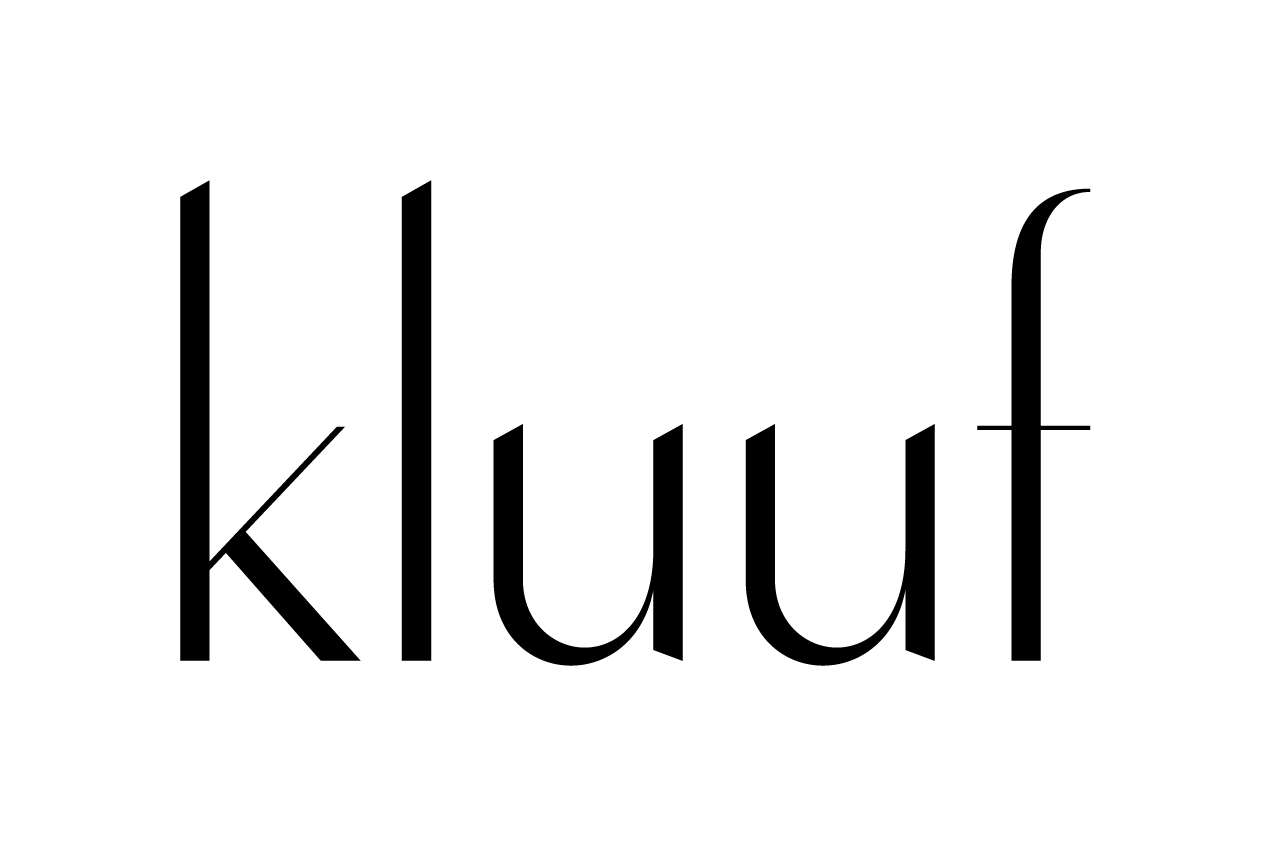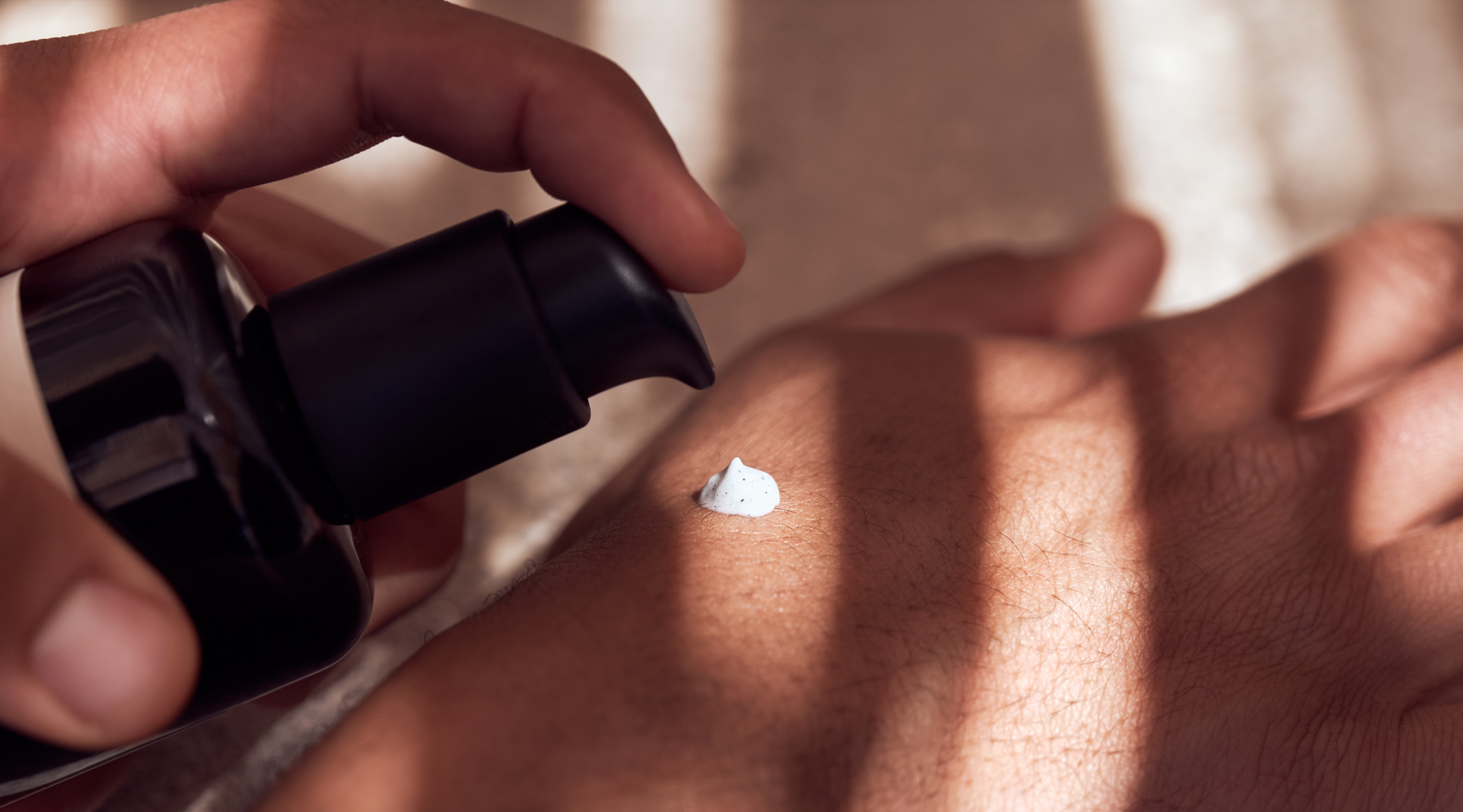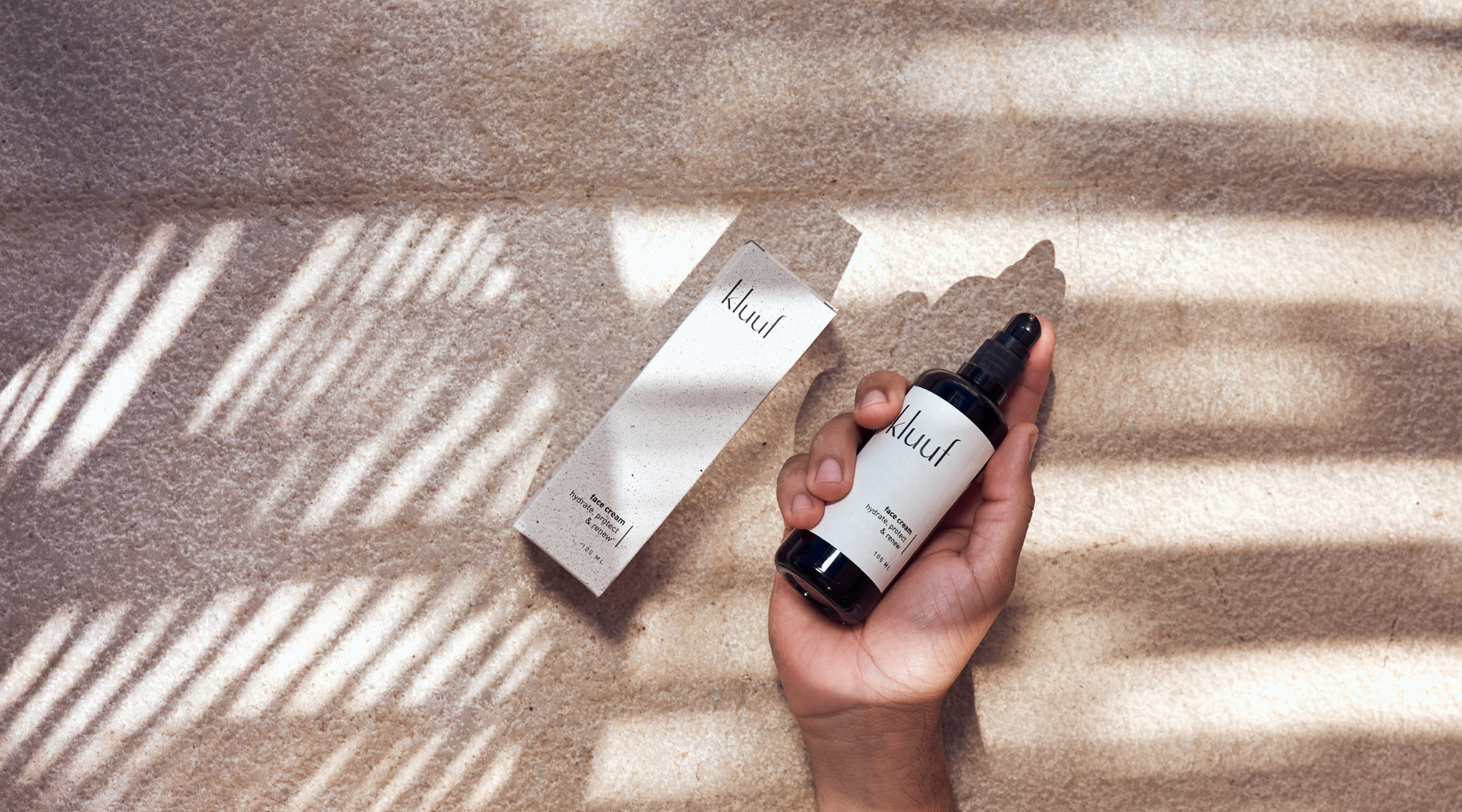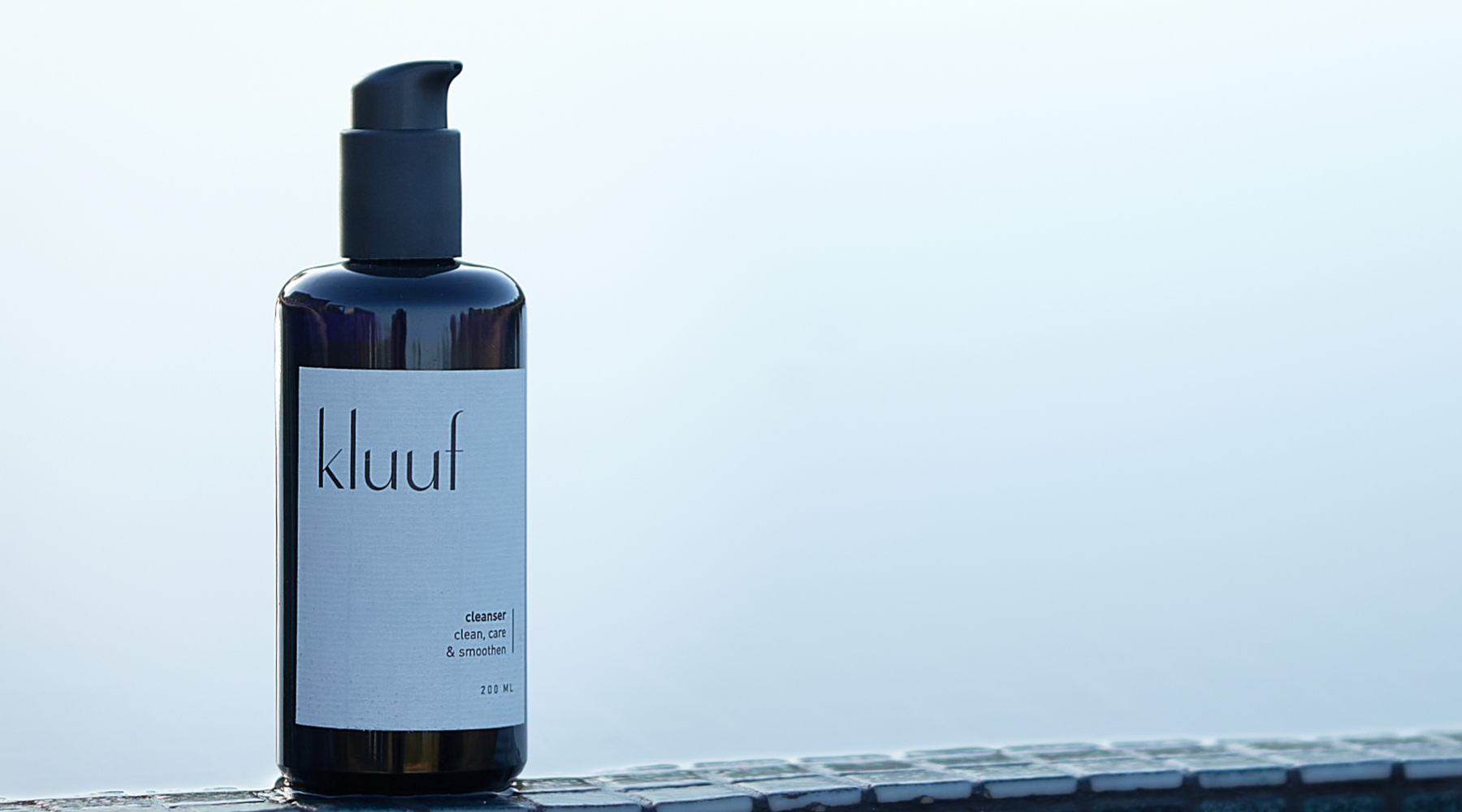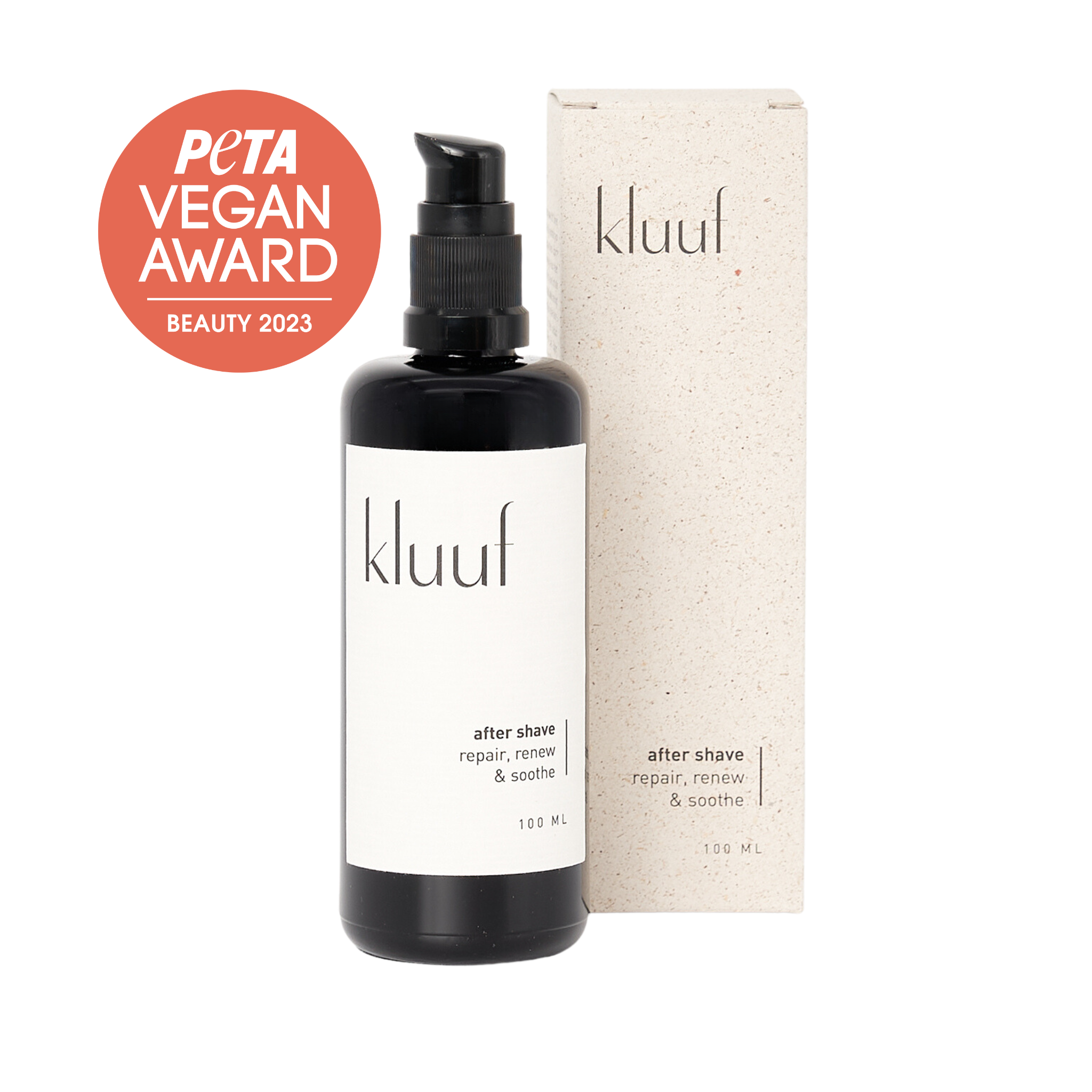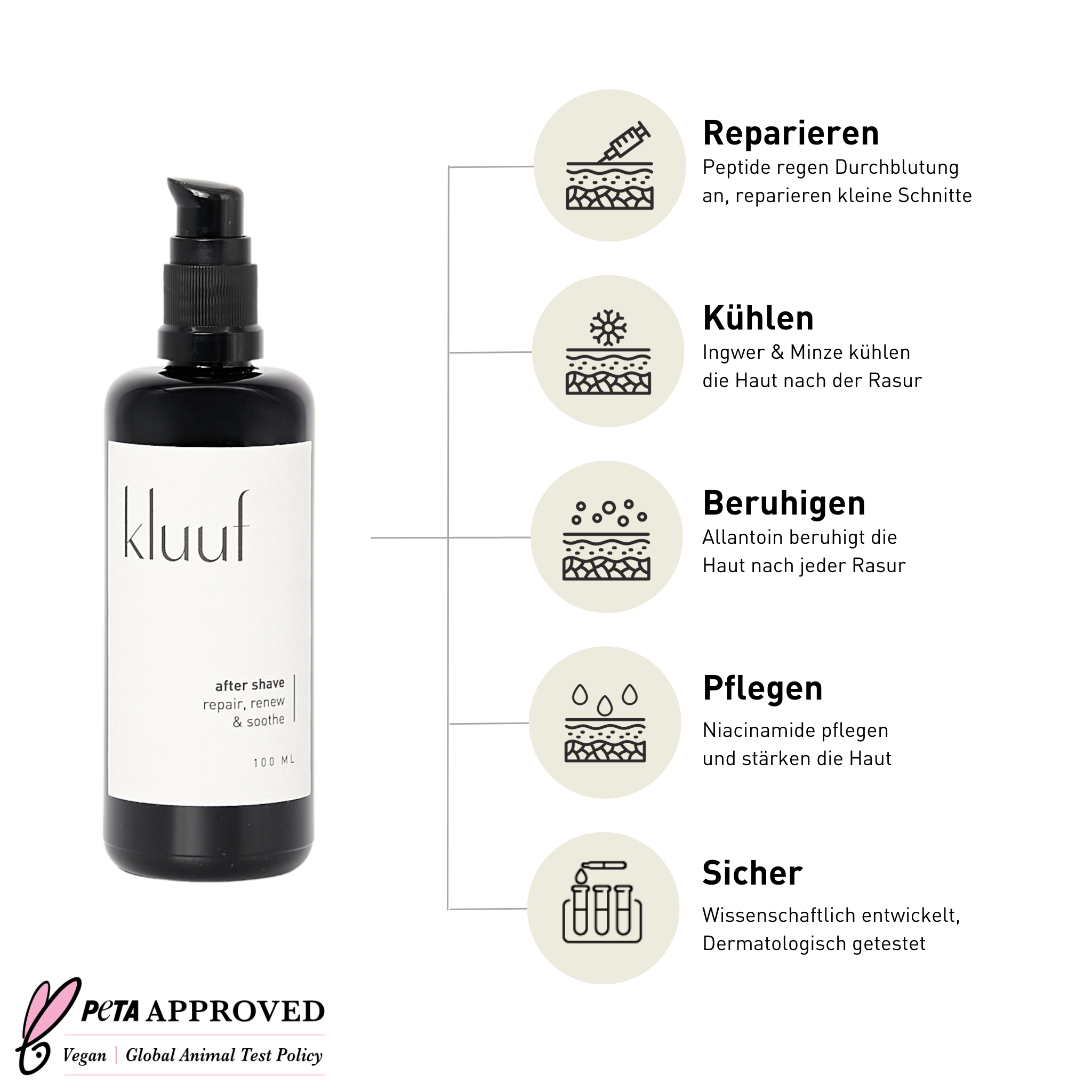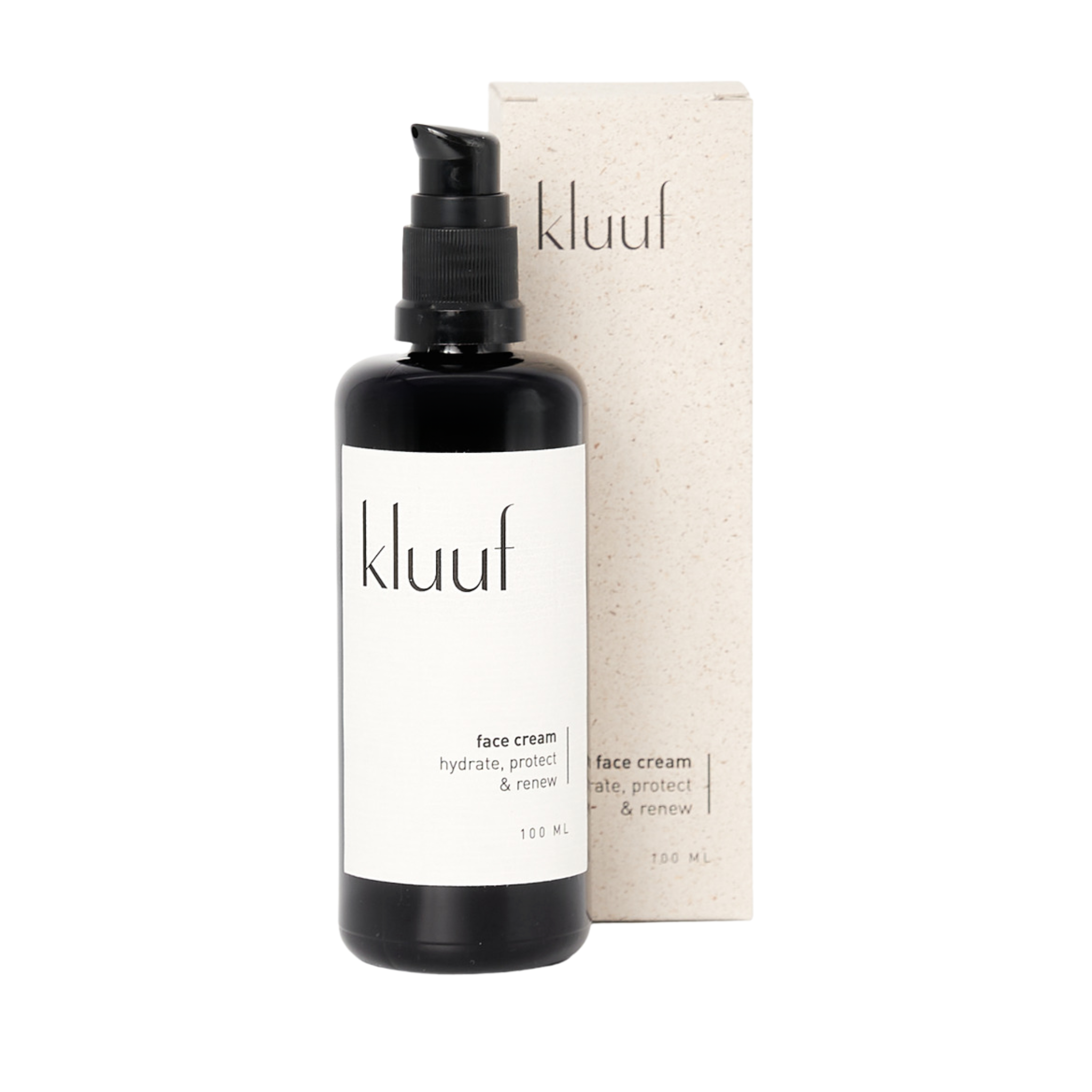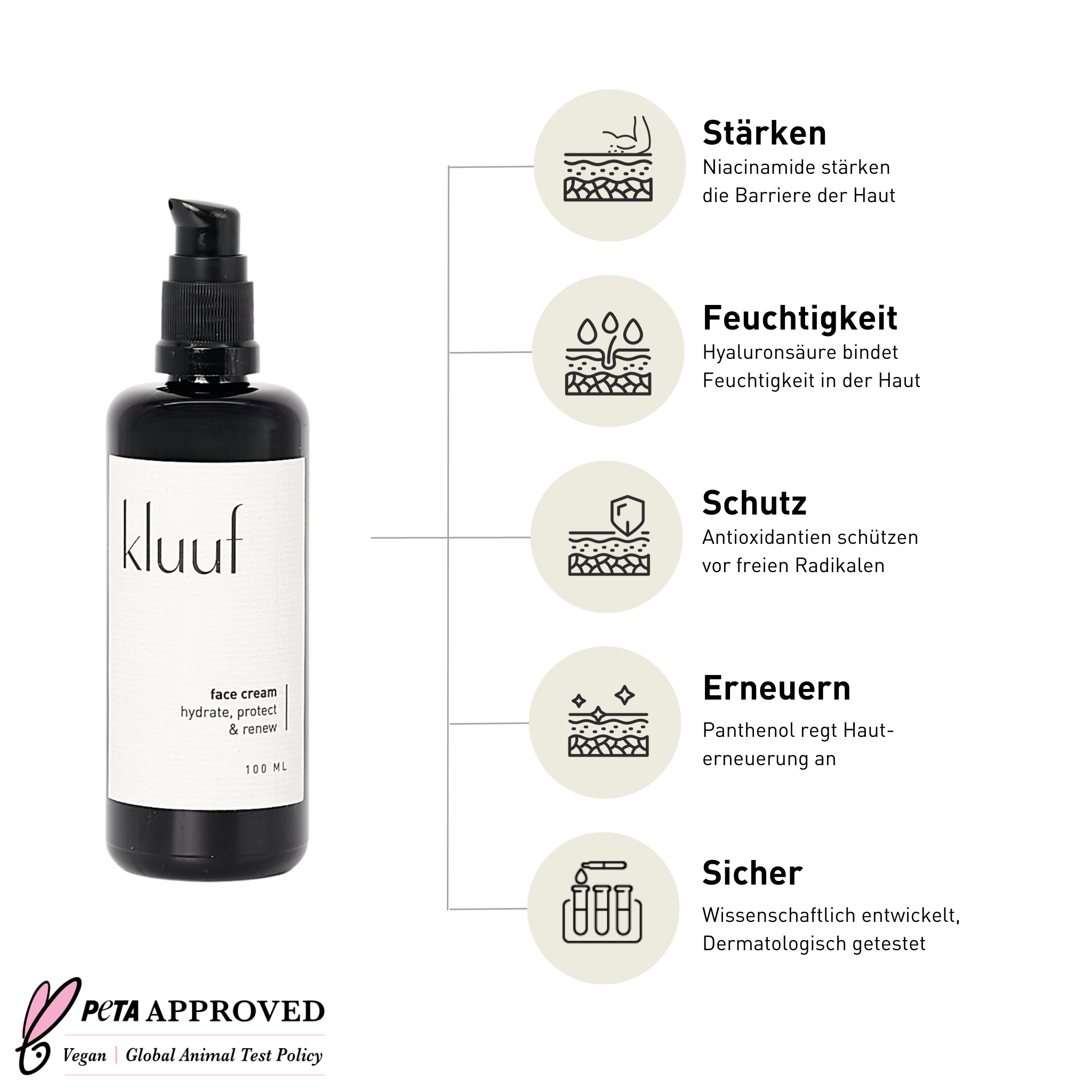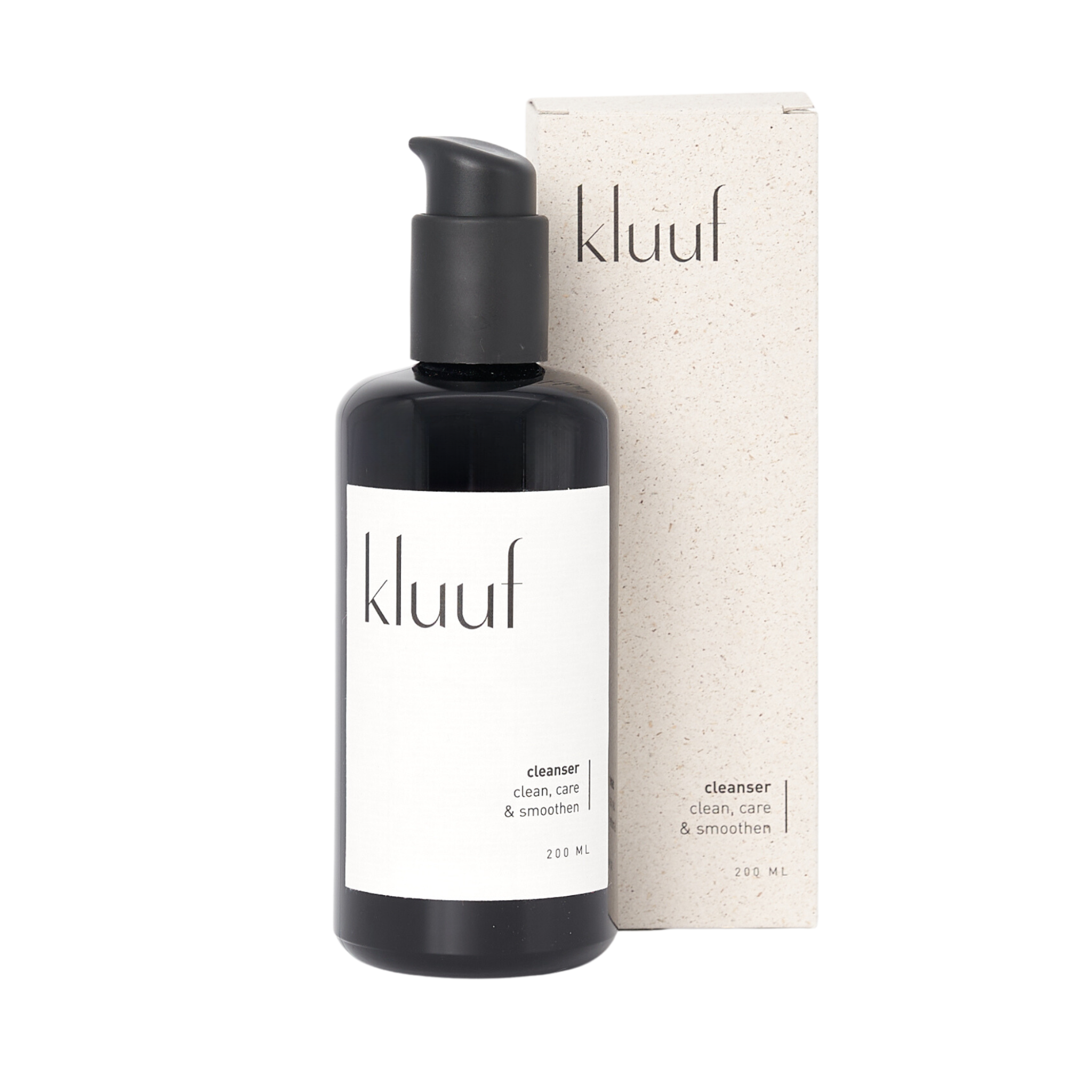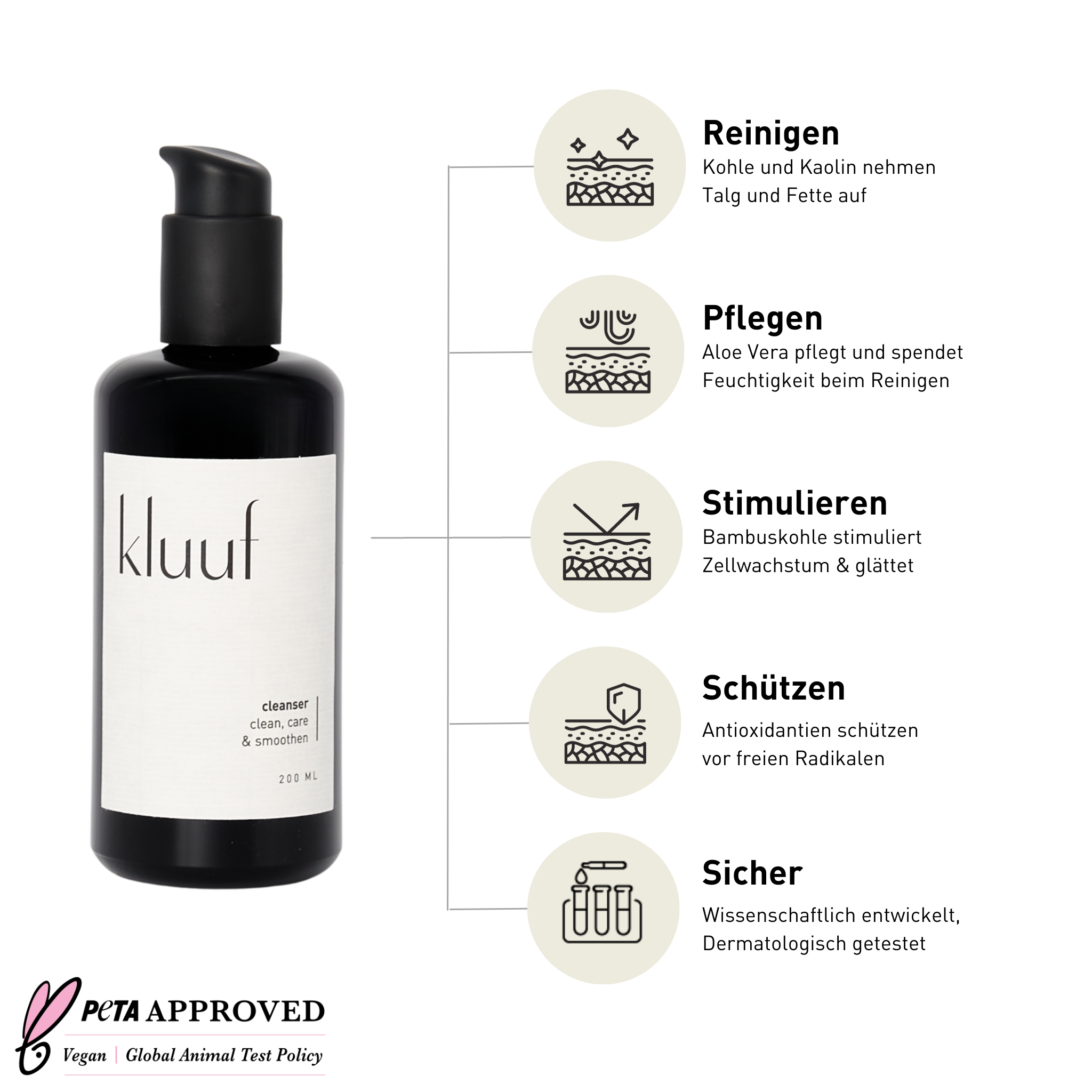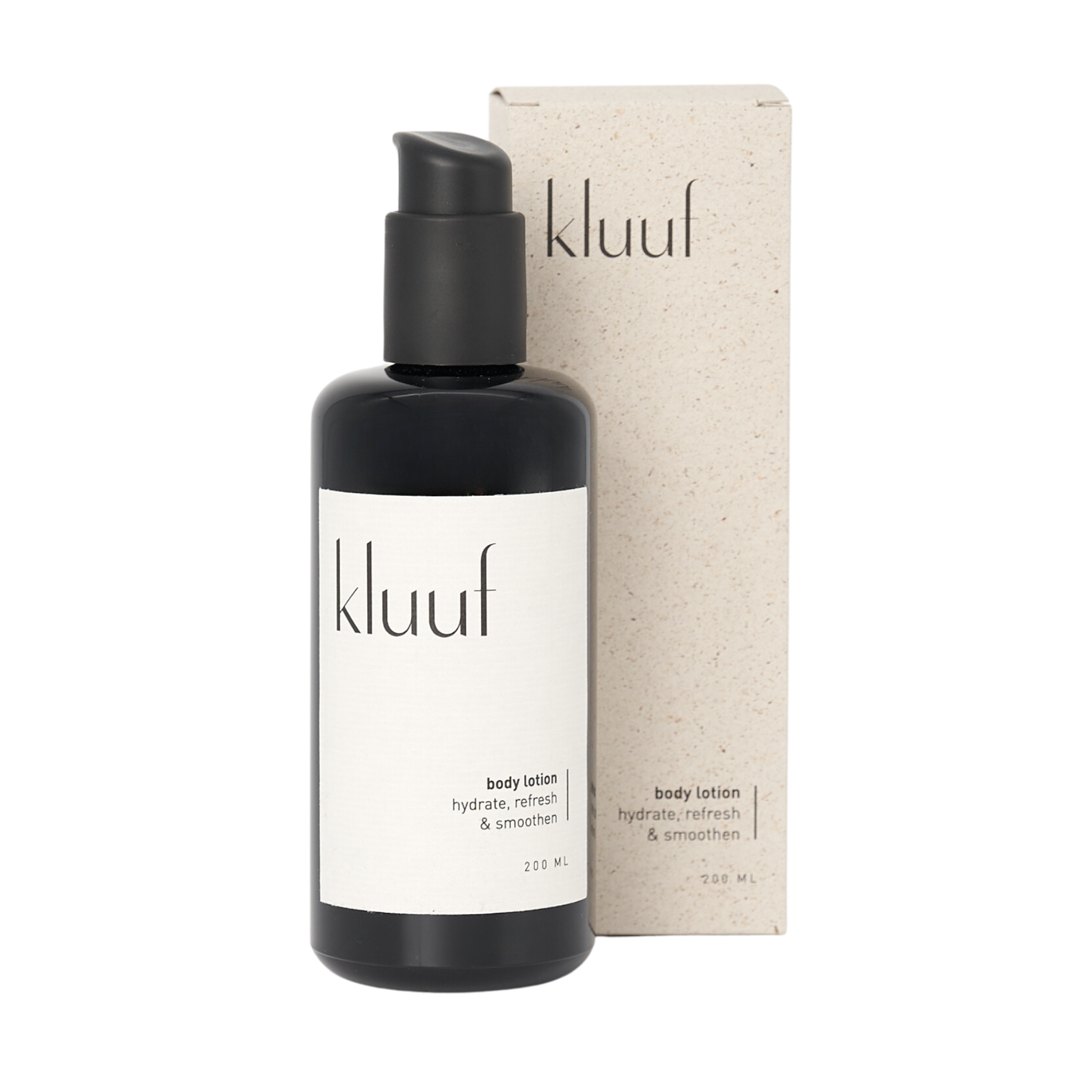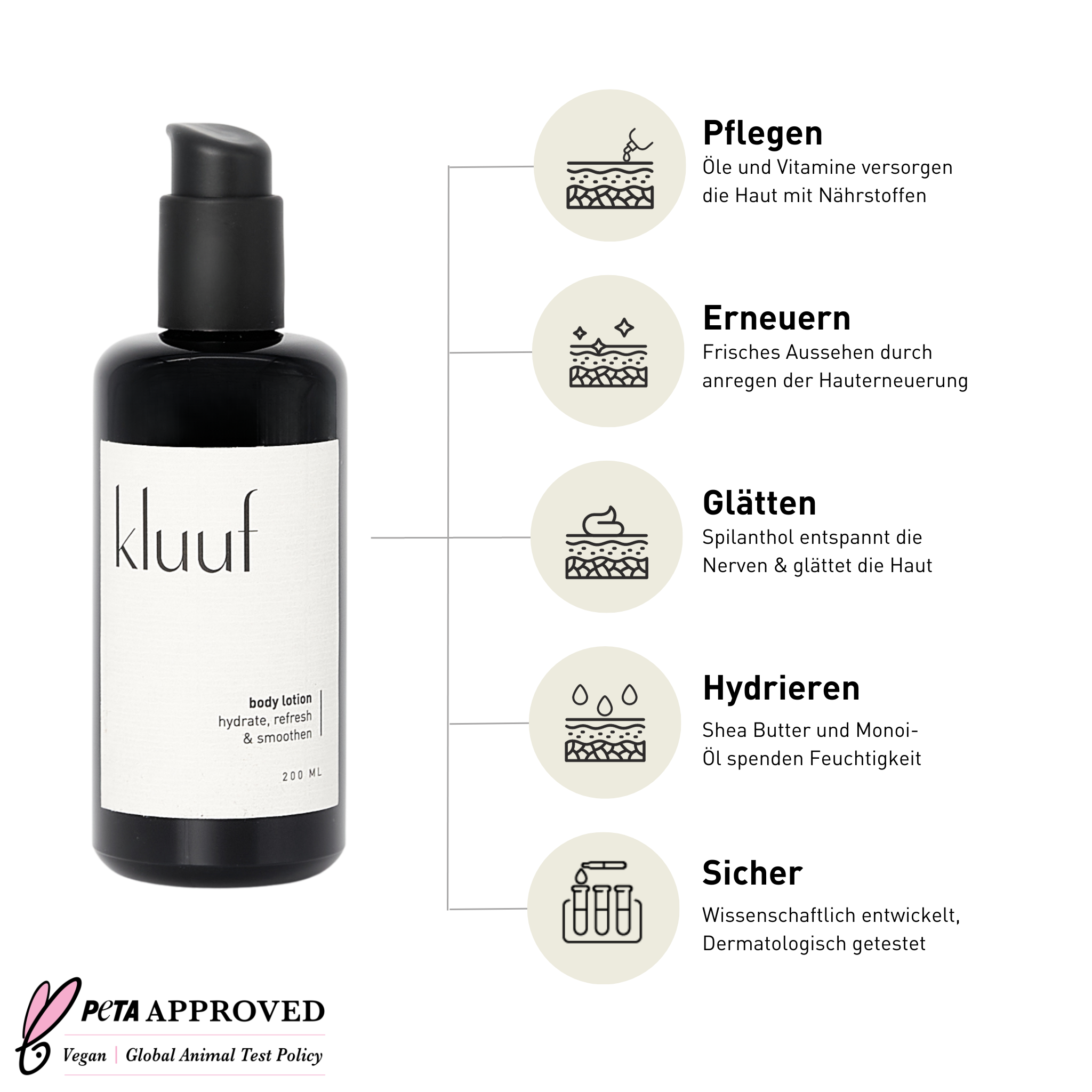All Kluuf products are dermatologically tested (for normal and sensitive skin) by an independent research institute before they go on sale, and the very good grade is our own internal approval criterion. We set this benchmark in skincare to offer our consumers products they can use carefree.
But what does dermatologically tested actually mean? Are these tests mandatory, who carries them out, who pays for them, what does that mean for your facial care routine and, and, and. This blog post explains the background to this popular claim.
But first things first:
1. Is it mandatory for manufacturers to have products dermatologically tested?
In the EU it is not mandatory to have new products dermatologically tested. However, the situation is different for the new approval of active ingredients, although this responsibility then lies with the raw material manufacturers.
2. Are there special regulations for brands to label products as dermatologically tested ?
The EU regulation does not provide any special regulations for this claim. It would theoretically be sufficient if manufacturers applied products to one test subject under the supervision of a dermatologist. In this case, the tested product would not even have to prove particularly good or bad skin compatibility.
That's why we always encourage all consumers to critically question how testing was done and what the actual test results are. The independence of the dermatologist may also be challanged.
3. Skin compatibility
As briefly mentioned in the previous paragraph, the claim dermatologically tested says nothing about the skin compatibility of a product. The effectiveness of the claims made are also not necessarily explored here. Both are common myths among consumers, which unfortunately often result in unmatched expectations and trust in skincare in general being scrutinised.
This is just another reason why it is worth asking exactly what was dermatologically tested, what the results are and how the tests were carried out.
4. Methodology
Reliable dermatological testing is carried out by an independent research institute commissioned and paid for by the manufacturer. The former then drafts a study protocol and begins recruiting the test subjects. The study protocol determines whether the test is to be carried out exclusively on normal skin or also on sensitive skin, which type of test is to be used as well as the demoprahics of the test subjects.
The epicutaneous test is popular, in which the product to be tested (e.g. a face cream or cleanser) is applied to the skin and then sealed off with an airtight plaster for 24 hours. Immediately afterwards (24 hours after application), as well as after a further 24 hours (48 hours after application) and 48 hours (72 hours after application), the skin is examined by investigators for redness, rashes and other signs of intolerance. A comparison patch with a placebo product is also included in the recording of the study results (i.e. to make sure the test subbject is not reacting to the plaster).
Based on the evaluation, the research institute usually issues a test grade. For an additional charge, some dermatologists also issue a seal which primary added benefit is marketing. However, it is worth noting that a seal alone doens’t say anything about the test results themselfs.
5. Subjects
Another common myth is that skin care products are tested on animals. However according to EU regulations, skincare and cosmetic products are not allowed to be tested on animals since over a decade.
Irrespective of the fact that such a test would theoretically have little meaning for compatibility on human skin, as a vegan skin care brand, Kluuf wholeheartedly supports this ban with regard to animal welfare.
Be sure to check out our article on vegan skin care. Here we shed light on the topic of the EU Cosmetics Directive and also the controversies surrounding the cosmetic supervision and administrative regulation (CSAR).
Incidentally, test subjects for dermatological research studies are always voluntary. They can apply for studies accordingly and are reimbursed for their time. To ensure independence, these people are not recruited by the client, but by the institute. The subjects are not informed which manufacturer or brand the test is for; another measure to ensure the independence of the test results.
Generally speaking, a demographically diversified test group and a significant proportion of test persons with sensitive skin and allergies are ideal. This covers as broad a spectrum as possible and increases the relevance of the test results.
6. Dermatological testing and Kluuf
For us at Kluuf, dermatological testing is not just a tick in the box, it is primarily the security of being able to offer our consumers products that have already shown excellent skin compatibility with different skin types.
However, since there are countless different skin types and intolerances, even the most prudent dermatological testing cannot guarantee a 100% compatibility. That's why we recommend apps like Codecheck and Yuka to highlight ingredients in products that skin may be sensitive to.
We take dermatological testing extremely seriously, so all of our products are:
- tested by an independent research institute under the supervision of a dermatologist (method: patch test).
- only given internal market clearance if no significant skin irritations, redness or rashes are found in over 30 test persons with normal and sensitive skin and are therefore awarded the best test grade very good .
For us, this goes without saying. Nevertheless, we encourage our consumers to always take a closer look. Because dermatologically tested is not always dermatologically tested and no reputable manufacturer can promise you 100% skin compatibility.
A note on our own behalf: Our marketing claims are not dermatologically tested by us, but are based on effectiveness tests by the active ingredient manufacturers. We did this, so that the subject remains with the experts.
